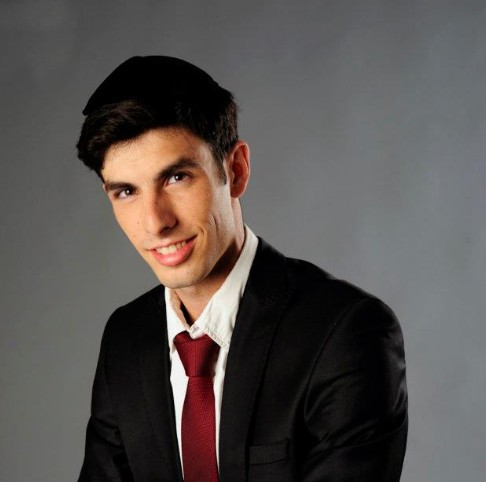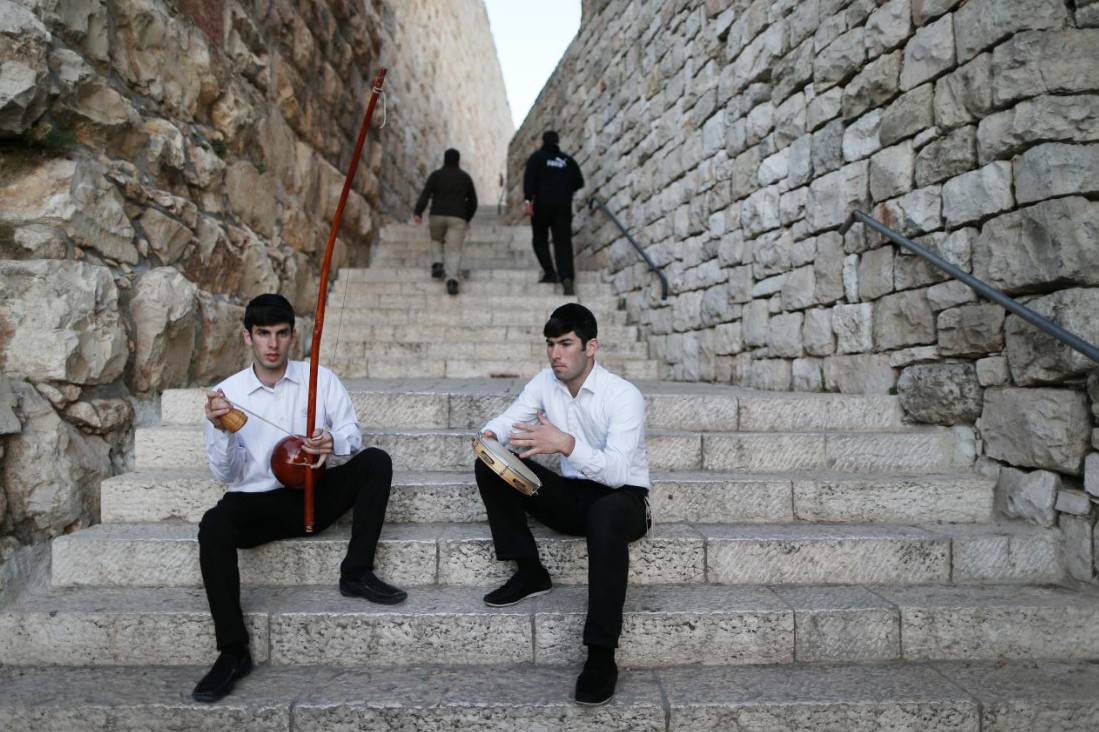Capoeira in Bnei Brak Style
Martial arts saved Miki Chait, the thin and weak child. At age 10, he began learning capoeira and has never stopped since. Today, he helps teenagers with behavioral issues or who dropped out of school, declaring, "I never allowed my training time to take away from Torah study." An Interview.

Despite his current appearance suggesting full confidence, it turns out that Miki Chait, an internationally recognized capoeira coach, could never stop getting beat up by his neighborhood friends. "I was a small, thin, and weak child — the kind who practically begs to be hit," he describes.
Chait, 24, from Rehovot, married and a father of two daughters, is a vibrant young man who makes sure to fill his day not just with martial arts, but with entrepreneurship of all kinds. Out of the many stories I heard, from which I could have filled a whole series of articles, I was particularly struck by Chait's work with teenagers who have dropped out of formal frameworks, those we typically refer to as "dropout youth." Through capoeira, he managed to instigate changes they never dreamed of.
 Miki Chait
Miki ChaitTwice a Week on Rollerblades, from Petah Tikva to Tel Aviv
But let's not get ahead of ourselves. He was born to a father who practiced Krav Maga from the age of five and a mother involved in gymnastics, horseback riding, and more. As the eldest son, he absorbed his parents' world and seems to have inspired his younger siblings as well. Naturally, he loved martial arts from a young age, learning Krav Maga, Thai boxing, judo, and more, but only persisted in capoeira. "All my Krav Maga training started out of a need to defend myself," Chait recalls. "I was a small, thin, and weak child, the kind who practically begs to be hit." At age ten, he had the chance to meet his uncle, one of the first to bring capoeira to Israel. "I saw him doing these unique movements and told him that this is what I want to learn." His uncle, who lived in the north, referred him to his group members in Rehovot, where he studied capoeira for years and felt he found his place. "It developed my personality. I felt I was blossoming."
When he reached the large yeshiva in Petah Tikva, he sought the nearest teacher and found Professor Isaac. "I bought a pair of rollerblades and traveled twice a week from Petah Tikva to Tel Aviv. I did a beginners' training for an hour and a half, then an advanced training for an hour and a half, and returned exhausted to the yeshiva."
Didn't you face problems at the yeshiva?
"I did my shtaygen, a lot," he says simply. "I was the study partner of the head of the yeshiva. I was at the Beit Midrash by six in the morning. I never allowed myself to take training time at the expense of Torah study. I knew that if I wanted to invest in capoeira, I had to give more than 100% in Torah study because that's my primary goal as a Jew."
In August, two years ago, Chait flew to Brazil to learn from Master Camisa and received an international diploma. Upon returning to Israel, Chait decided to open a studio. "Even during my studies, I found myself always running to teach the guys, and they succeeded. Then others came who wanted the same. I wanted to make it professional, and especially in Bnei Brak, because there was an urgent need for such a place."
 Miki and Yehuda Chait
Miki and Yehuda ChaitBody and Soul - An Artistic Rehab Battle for Any Problem
When he approached the Bnei Brak municipality, at the head of the dropout youth project was Yachikem Gamliel, who immediately saw the potential in Chait's offer. He began sending groups of boys and girls from unconventional frameworks. "They arrive with no confidence, no belief in their abilities, drained, with no discipline, and they undergo a learning experience here that they haven't had their entire lives. Here they learn that if they don't listen, they won't know what to do. They ask questions and find that they are reasonable and even get answers, and they mainly discover that persistence brings results."
Even children with attention issues and learning difficulties find themselves developing beyond expectations in the field of sports, where they have more opportunities to channel their energy, develop skills they didn't know they had before, and even concentration.
Very quickly, Chait found himself spending many hours with social welfare children and "dropout" youth and felt that beyond a mission, he just connected with them. "There's no hierarchy of coach and student in the group. I just listen to them, talk to them on their level, involve them, and am there for them. They understand there's no reason to perform rebellious acts here, and they learn to believe in themselves."
"I started a project in Kiryat Malakhi for 60 social welfare children. After the first lesson, I left exhausted and wasn't sure if I could make it the following week. In the end, I discovered that every week, I invent myself anew. I finished that year with 60 children hugging me, and it was definitely amazing."

